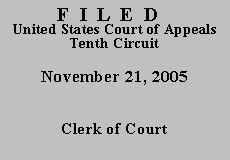

| LINDY RAY SOCKEY,
v.
TWYLA MASON GRAY; C.
WESLEY LANE, II; DEIDRE A.
LUJAN, Assistant District Attorney;
DEREK CHANCE, Assistant District
Attorney; DAVID STEINER, Police
Officer; B. CARTER, Police Officer;
LT. BULL, #546 Oklahoma City
Police Dept. |
|
The district court, upon reports and recommendations of the magistrate judge: (1) dismissed the petition against Defendants-Appellees Gray, Lane, Chance, Lujan and Howard for failure to state a claim pursuant to Fed. R. Civ. P. 12(b)(6); (2) summarily dismissed the petition against Defendant-Appellee Lt. Looney for failure to state a claim pursuant to 28 U.S.C. § 1915A(b)(1); and (3) denied mandamus relief against Defendants-Appellees Graham, Benson, Bull, Carter and Steiner. R. Docs. 62-65. The magistrate judge reasoned that mandamus lies only against federal employees, officers or agencies, and that the federal court lacks jurisdiction for what would amount to appellate review of state court convictions. The magistrate judge declined to convert the mandamus petition to a habeas petition, 28 U.S.C. § 2254, because Mr. Sockey opposed such a conversion.
The district court denied relief on jurisdictional grounds and we review de novo. Marquez-Ramos v. Reno, 69 F.3d 477, 478 n.3 and 479 (10th Cir. 1995). We affirm for substantially the same reasons as discussed by the magistrate judge. 28 U.S.C. § 1361 grants district courts "original jurisdiction of any action in the nature of mandamus to compel an officer or employee of the United States or any agency thereof to perform a duty owed to the plaintiff." (emphasis added). Federal courts are without jurisdiction to grant a writ of mandamus against state and local officials. See Olson v. `Hart, 965 F.2d 940, 942 (10th Cir. 1992); Van Sickle v. Holloway, 791 F.2d 1431, 1436 n.5 (10th Cir. 1986). Moreover, federal jurisdiction does not extend to appellate review of state court decisions. Anderson v. Colorado, 793 F.2d 262, 263 (10th Cir. 1986).
AFFIRMED.
Entered for the Court
Paul J. Kelly, Jr.
Circuit Judge
*. This order and judgment is not binding precedent, except under the doctrines of law of the case, res judicata, and collateral estoppel. This court generally disfavors the citation of orders and judgments; nevertheless, an order and judgment may be cited under the terms and conditions of 10th Cir. R. 36.3.
2. After examining the briefs and the appellate record, this three-judge panel has determined unanimously that oral argument would not be of material assistance in the determination of this appeal. See Fed. R. App. P. 34(a); 10th Cir. R. 34.1(G). The cause is therefore ordered submitted without oral argument.